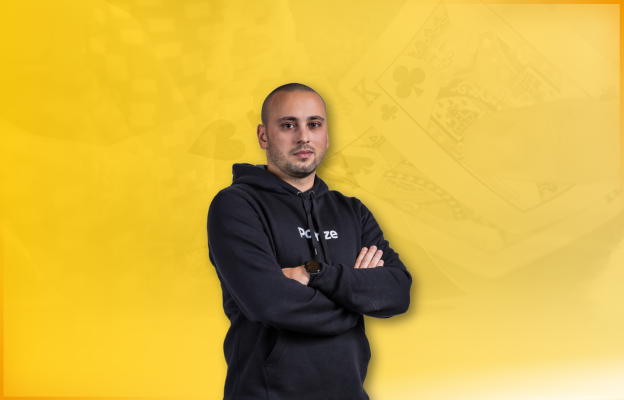On March 27, our athletes and staff had the opportunity to hear the speaker Dr. Mário Rodrigues, He is a psychologist and neuropsychologist who, as a researcher, seeks to be involved in projects that explore the applicability of interventions based on Mindfulness, as well as psychological interventions in a clinical context.
The practice of mindfulness, or mindfulness, mindfulness can be a powerful tool for professional poker players to improve their performance and emotional well-being. In this article, we'll explore how mindfulness can be applied effectively at the poker tables.
The learning of psychological skills, such as the learning of skills techniques, it must be practiced regularly and refined through systematic practice. It should also be noted that the higher the level of competition, the more similar the athletes are in terms of ability and level of training. In this process, psychological factors can play a major role in the outcome.
Understanding the Concept of Mindfulness
The mindfulness, or mindfulness, is the practicing mindfulness and present in the current moment, without judgment. In the context of poker, this means being completely focused on the game, without worrying about past or future results. By developing this awareness, you can make clearer and more conscious decisions, instead of acting impulsively based on emotions or distracted thoughts.
Flow vs. Mindfulness: Do you know the differences?
While both activities focus on the present moment, the flow tends to result in a complete immersion in the activity itself, while in mindfulness you remain aware not only of the activity, but also of your thoughts, emotions, sensations and the surrounding environment.
Mindfulness: The poker player is attentive to the cards, the stakes and his own emotions and thoughts during the game, maintaining an awareness of the present moment.
Flow: The player is completely absorbed in the poker game, concentrating only on the moves and strategies, losing track of time and self, and experiencing a sense of fluidity and efficiency in their actions.
Watch a guided meditation and integrate it into your daily routine.
Adopt an attitude of mindfulness and acceptance is not an easy skill to learn quickly. It's essential to consider the athlete's life and sporting history; breaking established patterns is a major challenge for professional athletes. It's about questioning pre-established mental models that have proved effective at one time or another. Adopting this new stance will require a willingness and flexibility on the part of the athlete to question previous mental models.
However, by adopting a stance of mindfulness In addition to the benefits for the athlete's sporting career, the impact of its use on physical and mental health is also highlighted, an aspect widely pointed out by scholars in the field.
Sources:
- Webinar “Mindfulness na Performance do Atleta”, Dr. Mário Rodrigues
- “Mindfulness e o esporte competitivo: a importância para atletas de alto rendimento”, Anna Vitoria Rodrigues Renaux de Oliveira, Ricardo da Costa Padovani




Comments